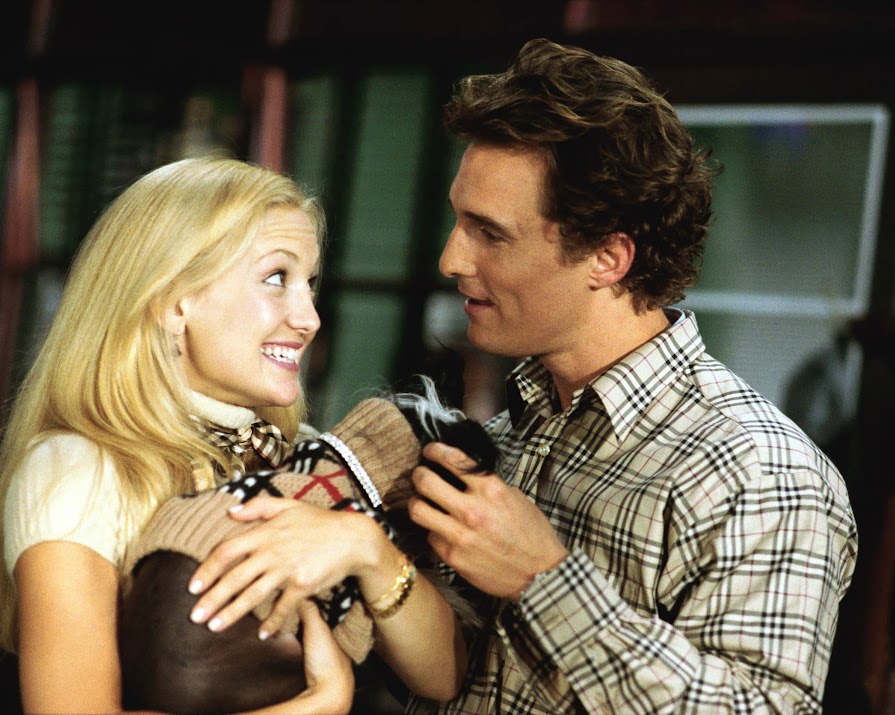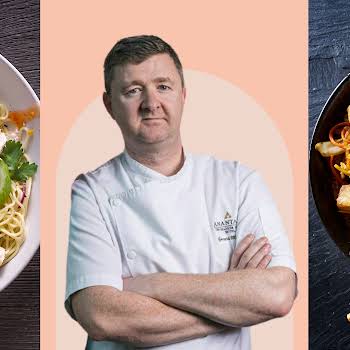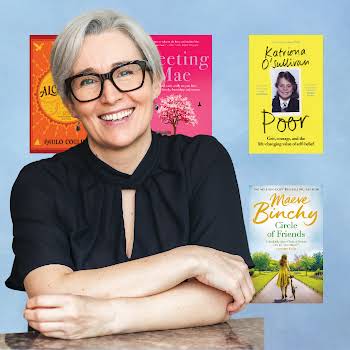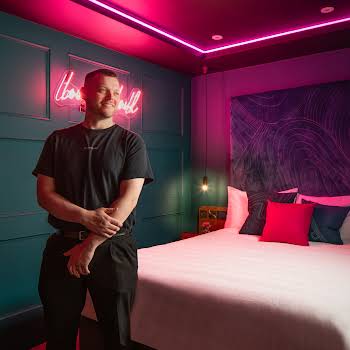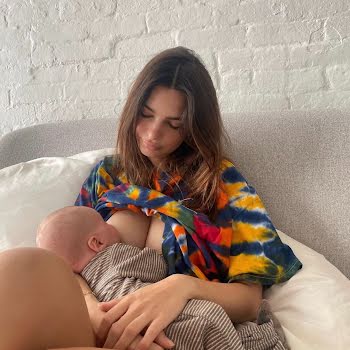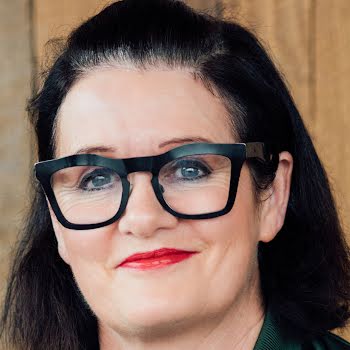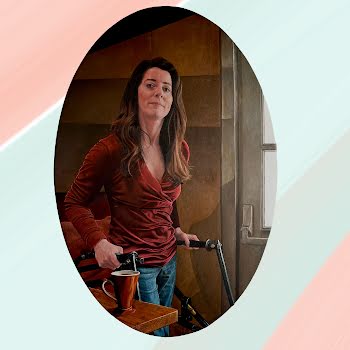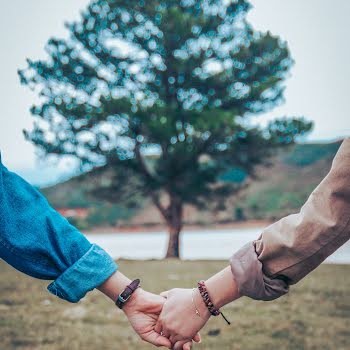Why paying for dating apps (or going to a matchmaker) isn’t desperate
By Sarah Finnan
18th Jun 2024
18th Jun 2024
Here, we speak to two experts about why paying for dating apps, or going to a matchmaker is anything but desperate.
There was a time, not even that long ago, when the words “dating app” were uttered in hushed tones, whispered between friends as eyes darted around the room to make sure no one else was within earshot. There was a shame in admitting that you had gone online in search of love; people wanted to find love but they’d loath to admit exactly what sources they had turned to.
It seems strange to think about now given that dating apps have become very much the norm in recent years – their popularity surging during lockdown when in-person meet-cutes weren’t possible. But while the concept of online dating is now readily accepted, the stigma surrounding paying for dating apps, or indeed other dating services such as matchmaking, definitely still exists.
Why do people go down the paid route? For some, it’s about taking control of their dating lives. For others, it’s about safety and security. As Mairéad Loughman, a qualified matchmaker, founder of Love HQ and host of the award-winning Would Like to Meet podcast, puts it: you’re willing to outsource every other part of your life, why not your quest to find love?
“People are so used to outsourcing to professionals in all areas of their lives. Most people get their hair done professionally, you know, they have their accountants do their accounts. The biggest decision you will ever make in your life is who you’re going to marry, who you’re going to have a family with. It is, by far, the biggest decision of your life and one that will influence all areas of your life – it’ll decide where you work, what kind of job you do, how many hours you work, how many kids you have, your mental health, how happy you are, how many holidays you go on a year. So, it’s not a decision that should be taken lightly.”
In terms of paying for dating apps Dr Caroline West, a sex educator and host of the Glow West podcast, doesn’t think it’s a bad idea. “It may mean users are more committed to dating and will engage in consciously looking for partners,” she explains. “It may also mean better support services from the app. As we know, dating can be a difficult process so if something happens on an app, a dedicated support team can be great to solve the issue.
“Paid subscriptions might help weed out those not serious about dating or those more interested in trolling, as when the profiles are monitored or even verified it can feel like a safer experience. It can also mean that users want to get their money’s worth so are more conscious about filling out their profile completely.”
As Mairéad notes, women value their downtime now more than ever. In generations gone by, getting married was about survival – about finding someone who could provide for you and with whom you could start a family. Nowadays, it’s more of a choice, something people do to enhance their lives as opposed to out of obligation. “When it comes to actually paying,” she tells me, “people want to get the very best option they can.”
Age often factors into why someone might turn to matchmaking or decide to opt for paid dating services too. People are getting married later in life but they don’t want to spend inordinate amounts of time dating the wrong partners, so they try to expedite the process by having a professional help them out. “It’s the quickest way to getting the results they want,” Mairéad agrees. According to her, people on dating apps spend an average of 10 hours per week swiping and messaging people they’ve matched with… which can be a lot on top of an already demanding schedule. Essentially, a matchmaker is there to do that groundwork for you. Mairéad herself has personally matched over 7,000 people since 2016 – she had 24 weddings last year alone, so you could say she’s been pretty successful.
“People are not going to lie to me. People are not going to enter into this service, because it is a premium, charged service, and lie to me. If you’re coming to me, I’m like ‘Just tell me who you are, we’ll find what you’re looking for’. I’m very realistic with clients. If they’re way off the mark, I say that to them… I tell them if they’re not being realistic and explain why.” Mairéad thinks daters are overprescribed to this idea of the “dream man” or “dream woman”, which doesn’t help when it comes to finding a partner.
“The problem is reducing what’s available to us as well. Because we have so much choice now with online dating, there’s this thing called the paradox of choice and what that means is, the more choice you have, the less likely you are to make any choice at all. The more choices you have, the more likely you are to stay single.” It’s basically when you get a case of the “what ifs?”. You’re dating someone and they’re great, but… what if you met someone who was funnier, taller, with more money? You worry about what else is out there, so you let a good thing die and end up staying single.
As for whether there’s a stigma around paying for dating apps, Dr West thinks that’s a thing of the past. “We have moved on a long way from the shame of using dating apps, now everyone is using them. Previously, people lied about where they had met, now we have wedding cake toppers with the logo of the dating app on it. It’s great to see Irish people embracing alternatives to the pub, and trying out sober dating or other ways to find love. Apps are now considered just part of the dating experience, not something to have to do in secret for fear of your family finding out where you really met.”
While Mairéad doesn’t necessarily think there’s a stigma around paying for dating services per se, she does think that matchmaking is “Ireland’s biggest secret after Santa Clause”.
“I guarantee that anybody reading this has been at a wedding where the couple were set up by a matchmaker,” she laughs over the phone. At one wedding, the bride and groom introduced her as being a friend of theirs as opposed to their matchmaker. “I was mentioned in the speech as being friends with the bride and groom, not that I was a matchmaker – even though I was invited to the wedding and I was so happy to be there.I don’t care if people say it or not but it’s so funny, it’s probably the only profession that you say to people, you probably shouldn’t tell all your friends. Very few men want their friends or family to know that they were set up by a matchmaker.
“I would have some of Ireland’s most high profile business people, media people, politicians, people in the legal profession – people who are highly sensitive with their private lives given their jobs – coming to me to match them. And there’s a huge amount of secrecy. There’s nobody in Ireland who doesn’t know at least one person that I’ve matched,” she tells me knowingly (which intrigues me to no end). The secrecy isn’t down to embarrassment so much as people wanting to “make up their own love story”.
Mairéad actually advises her clients not to tell friends that they’re paying for her services – 1) to lessen the pressure on the experience and 2) to avoid pals overhyping clients about potential paramours. “The problem with telling your friends is, you have the girls hyping you up when you’re going on your third date and the third date is actually very sensitive – a lot of women subconsciously decide whether or not this is going to be their life partner on the third date, believe it or not. So, if the girls in the group chat are like, ‘Oh my god, it’s date three. Do you think this is the one and you’re going to get married and live happily ever after?’, that’s a lot of pressure when you don’t even know this person. You’ve only met them three times in your entire life, how would you know at this stage?”
Desperate is not a word that ever factors into the equation here though – either for Mairéad or her clients. “I’ve never come across one person that was desperate, and I’ve matched 7,000 people. I really mean that. It is probably the least likely word that I would ever use for any of my clients. The word I would sometimes use is loneliness. Sometimes their biological clocks are ticking or they just really want to find love, so they come to me. There’s a myth with online dating that, ‘Oh the next one will work out’, and I suppose they were all hopeful that it would. So, maybe they’ve run out of time a little bit, but they’re not desperate.”
Paying to find love, be that with a dating app subscription or an appointment with a matchmaker, is actually a radical act of self-love. It’s empowering, it puts you in the driver’s seat and shows that you’re unwilling to accept anything less than what you know you deserve. Settling was kind of the only option for a lot of people back in the day when circumstances meant finding a partner was priority number one, but now, daters are more conscious of their needs and desires… which is anything but desperate.
This article was originally published in February 2023.











